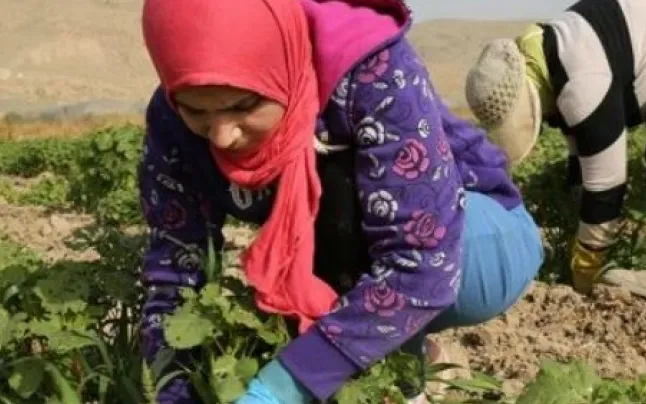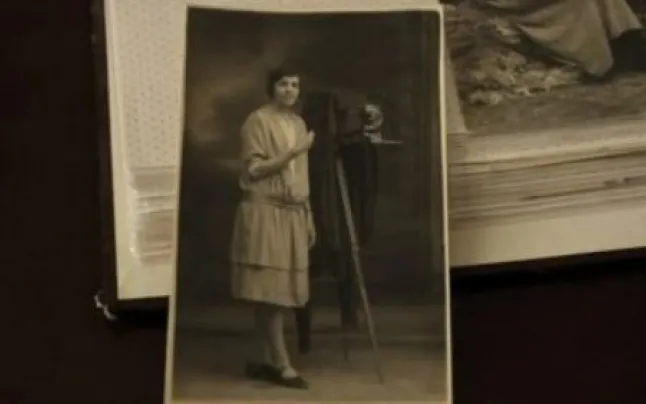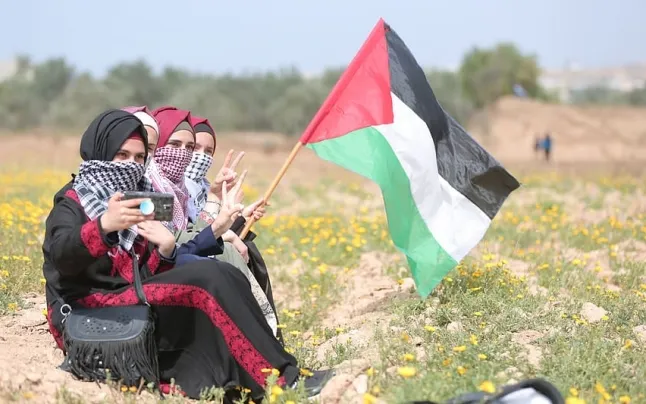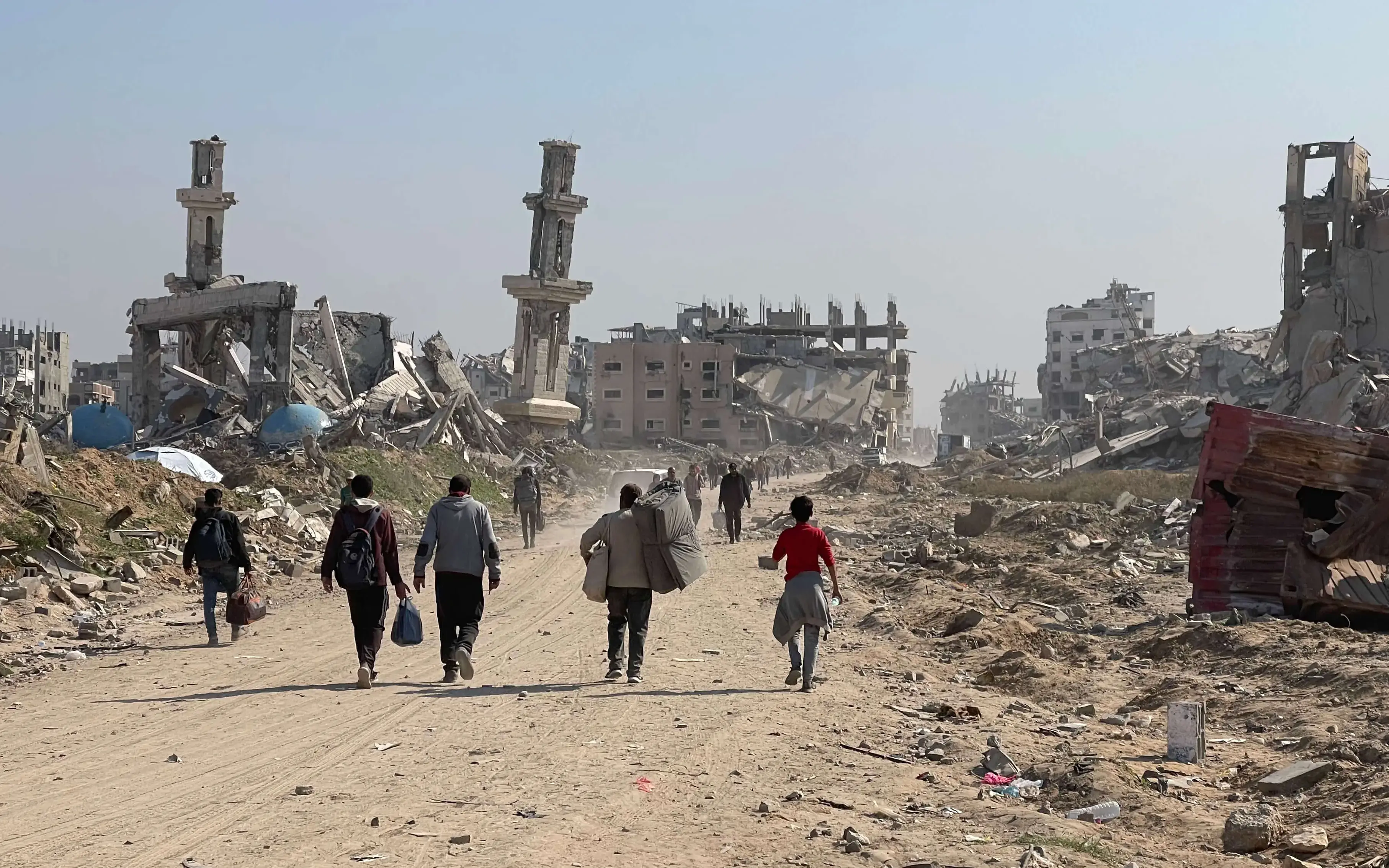Tasharuk, a space to transmit and raise awareness about culture, gender and resistance in Palestine
The website, run by five organizations, shows how the interaction between the Israeli occupation and the dominant patriarchal system in Palestine especially affects Palestinian women and girls.
"Palestinian women and girls are at the intersection of the occupation regime and the prevailing patriarchal culture, and therefore experience multiple layers and types of violence directly". These are the words of the United Nations Special Rapporteur on violence against women, its causes and consequences, Dubravka Šimonović, which sets out the problems that Palestinian women and girls must face and resist every day and which determines each and every one. of aspects of their daily lives.
This is the reality that the Tasharuk website wants to make clear, born of the commitment, work and experience of various entities to give a voice to organizations working in the territory and fighting to improve the living conditions of the Palestinian population.
Tasharuk, which means sharing in Arabic, is the result of the joint work and initial collaboration of the Catalan organizations Hèlia, Sodepau and the Escola de Cultura de Pau, as well as the Palestinian NGOs Women's Studies Center and Family Defense Society, with the support of the Agència Catalana de Cooperació al Desenvolupament i la Generalitat de Catalunya. (Catalan Agency for Development Cooperation and the Generalitat of Catalonia. in english).
“Our idea is to show a vision of Palestine through the analysis of the intersection between occupation and patriarchy, and how this, in the particular context of Palestine, results in a systematic violation of human rights that especially affects women and girls”, explains one of the members of Hèlia, the organization that leads the initiative and works on issues of feminist solidarity with various Palestinian organizations, told Nonprofit of Xarxanet.
In fact, all the organizations involved in Tasharuk have been working for years to make visible the multiple violations of rights and violence that Palestinian women and girls face in a context marked by the Israeli occupation and the dominant patriarchal system in Palestinian society.
The website is a platform to make this reality known and all the work that organizations have done over the years. "We consider that in Catalan language there were few resources that deal with this issue and that give a vision of Palestine more focused from a gender perspective, a perspective that is often forgotten", says the Helia member.
Tasharuk is part of the project 'Improving the resilience of Nablus governance communities through women's empowerment and gender mainstreaming' which is being implemented in Palestine and Catalonia between January 2021 and June 2022 and focuses on two basic pillars: women’s empowerment, and the co-responsibility of local communities and institutions in gender equity.
A space with resources from experiences and shared visions
Tasharuk wants to capture these learnings from the experiences of exchange, knowledge and thinking with Palestinian women activists, creators and organizations, giving prominence to their voices and stories. To this end, the website addresses the implementation of the agenda on gender, peace and security in Palestine, while highlighting the experiences and artistic productions of Palestinian women.
It is a space where you can find all kinds of content, such as films and documentaries; contacts with filmmakers, activists and Palestinian women's organizations; first-person oral and written accounts of Palestinian women who are overcoming situations of gender-based violence; as well as publications and teaching guides to continue working on awareness in this area. At the moment, the content is available in catalan and spanish.
"At the same time, we want to do it from the point of view of sharing experiences and highlighting positive issues that are being made in Palestine, because usually the news that reaches us from the country always speaks of violence and disasters that occur in the context of the political and military conflict”, explains the member of Hèlia.
However, it highlights the lessons we can learn from Catalonia from the resilience and the way in which Palestinian women and girls deal with such difficult situations. "Behind Tasharuk there is a lot of sense of learning that we can do from Catalonia from the experiences that are being made in Palestine", she emphasizes.
An important part of Tasharuk is to give prominence to Palestinian women creators, especially filmmakers, as well as recover their memory, often forgotten by history. In this way, the presentation of the website had the intervention of the director Mahassen Naser El Din, who explained that cinema and other artistic disciplines are means through which the general population, and especially women, express their reality and their daily struggles.
Tasharuk presents itself with the intention of expanding and growing and plans to gradually expand its contents and also offer them in English and Arabic. In addition, their own reports on gender, culture and security will be added, and the idea is to give more voice to Palestinian organizations.
All this is taking place in a very difficult context for these entities, which are undergoing a constant campaign of harassment, discrediting and criminalization deployed by the State of Israel. A strategy that has intensified since late 2020 and early 2021 and has experienced its last episode with the recent statement by the Israeli Ministry of Defense, in which it has described six of the main Palestinian humanitarian NGOs as terrorist organizations.









Add new comment